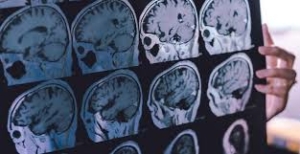Vets with TBI at Increased Risk for Dementia

Vets with TBI at Increased Risk for Dementia
By Debbie Gregory.
After reviewing the medical records of more than 350,000 servicemembers who served during Operation Enduring Freedom and Operation Iraqi Freedom, researchers have found a link between those who experienced at least one mild traumatic brain injury (TBI) and the development of dementia.
The study, led by Deborah E. Barnes, PhD, MPH, posed the question “Is mild traumatic brain injury without loss of consciousness associated with an increased risk of dementia diagnosis in veterans?”
The findings revealed that mild TBI, even without loss of consciousness, was associated with more than a 2-fold increase in the risk of a dementia diagnosis.
Some 15-20 percent of veterans who served in Afghanistan and Iraq had at least one mild TBI, usually through one (or in some cases multiple) exposure to post-explosion shock waves.
The study included 178,779 patients diagnosed with a TBI through the Veterans Health Administration health care system, and 178,779 patients in a propensity-matched comparison group.
While it is not clear why the damage caused by a TBI would make someone more prone to a dementia diagnosis, there is a theory that inflammation and the loss of white matter after the injury could create a more inviting environment for the amyloid beta plaques and neurofibrillary tangles associated with dementia.
“The chronic effects of traumatic brain injury (TBI), particularly dementia and related neurodegenerative disorders in military veterans, have become an intense research focus,” wrote Dr. Kimbra Kenney of the U.S. Uniformed Services University and Dr. Ramon Diaz-Arrastia of the University of Pennsylvania’s Traumatic Brain Injury Clinical Research Center in a JAMA editorial article. “This study provides the best information to date that military veterans are at risk for dementia as a consequence of injuries sustained during their service to the United States,”

















